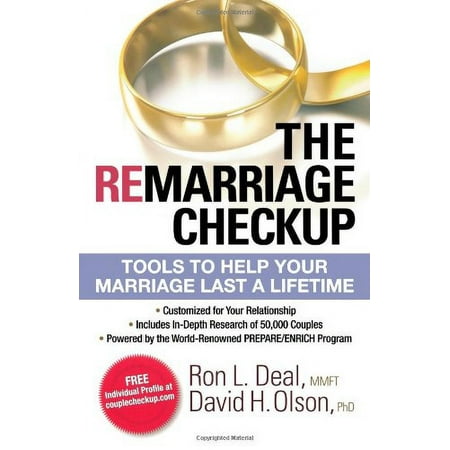Find out if your everyday marriage issues are magnified by a bad marriage attitude.
Does your marriage have a bad attitude?
Before you can proceed with the DMK Marriage Essentials Test you should determine if you and your spouse have the current ability to recognize and overcome each spouse's differences. We refer to this value system as Your Marriage Attitude (YMA).
Review each personality value below with your spouse. Rate each value, positive or negative, based on your individual opinion (positive for true and negative for false).
e.g. Personality Value #2 (personal opinions): You and your spouse share similar personal opinions (examples: politics, family, ambition).
Rate positive for yes, negative for no. Compare with your spouse when all ten are completed, do not change your answers.
Determining Results
- Add all positive and negative answers - First Determine your overall compatibility by adding the total number of individual responses. There are 10 Personality Values. Together you have a total of 20 (positive or negative) ratings (10 for each spouse). This gives you your current compatibility factor. The total is based on 20 answers.
- Add all positive and negative comparisons - Then compare each of your answers to determine your opinion of compatibility. For each answer to the Personality Values Statements, rate positive for both spouses answering the same (positive or negative). Rate negative when one spouse answers positive and the other spouse answers negative. The total is based on 10 comparisons.
- Combine answers and comparisons to get YMA - Now add those numbers together (10 positive or negative comparisons and 20 positive or negative answers). If your answer is 16 or more positives then your marriage attitude (YMA) is positive. Otherwise your marriage would be considered to have a bad attitude.
Remember it's not just about the Personality Values as it is about whether you share a like opinion of these Personality Values.
e.g. husband's answers 6 negative/4 positive and wife's answers 3 negative/7 positive PLUS comparisons of each Personality Value the couple responded the same on 4 Personality Value Statements and different on 6 statements resulting in 4 positive and 6 negative. YMA results then are (marriage 15 negative and 15 positive) meaning their marriage attitude is negative. A positive marriage attitude begins at 16. With improved communication, this couple may easily be able to improve their marriage attitude.
Your Marriage Attitude is based on your shared opinions of the following Personality Values:
- Both share an equal interest in your relationship with each other.
- You share similar personal opinions (examples: politics, family, ambition).
- Your life circumstances are relatively the same (childhood, education, family).
- Your individual experience and background are the same.
- Your personality traits are similar.
- You share similar expectations for most things and people, including each other.
- Both value the importance of problem resolution.
- Both have similar high, average or low self-esteem.
- You have similar interests, hobbies or pastimes.
- You both share a similar opinion of goalsetting, work ethic and ambition.
Perspectives of each spouse, together as a couple, represent YMA. In determining YMA, use the opportunity less like a test and more a chance to realize how each spouse considers the differences in personality values as a contribution to common marriage problems. Discuss the Personality Values you disagree about. Share the reasons you each believe as you do. Be open-minded and patient when listening to your spouse's reasons for his/her opinion. Do not interrupt. Let him/her completely finish explaining why he/she feels that way.
Why does it help to know how we feel about our differences?
A negative marriage attitude contributes to poor communication. Communication problems are one of the top reasons for divorce.
e.g. If one spouse thinks the couple shares a similar work ethic and the other doesn't, then it can affect the way one spouse feels about the other while the other has no idea why he/she feels or behaves as he/she does. It can affect how a couple interacts with one another, affectionate engagement, patience and empathy among other things.
Discovering your marriage attitude brings these topics and differences to each spouse's attention. In addition to a high negative rating, numerous differences obviously increase the potential for a negative marriage attitude. However, many couples may have an "opposites attract" dynamic that make the differences less important than the recognition of such differences.
A negative marriage attitude would produce a higher likelihood of disagreements and arguments over even minor incidents or issues.
This means the marriage has a bad attitude. It's then possible that the differences of opinions over each other’s dissimilarities may fill the cup of marital discord to the rim giving very little room for any regular, daily disagreements without the cup running over.
How to use your YMA in conjunction with the DMK Marriage Essentials Test
A happy marriage needs compromise and patience
If you each have very different views based on the above factors, you will need to demonstrate great compromise to achieve a positive marriage attitude. Couples in a happy marriage will share a positive overall opinion of their marriage's essential qualities. They also must regard each quality with similar value or adjust to accommodate for their spouse's need for that specific marriage trait. This compromise will provide an overall better attitude about the shared differences and similarities each marriage includes.
Most couples of unhappy marriages do not share a positive opinion of their marriage, scoring Poor or Low on the Marriage Essentials Test and are unwilling to compromise on personal views as they negatively affect YMA. These opposing viewpoints are recognized in the Marriage Essentials Test when a significant variance occurs in how each spouse rates specific essentials (see The Marriage Essential Grading System (individual spouse) section of the Marriage Essentials Test.)
Example: If one spouse feels communication is terrible and the other feels it is excellent, then the spouse who rates communication a 10 (best), while the other rates it a 0, likely values communication less. This means, he/she will need to work on communication skills while the other spouse must be patient and willing to express what he/she needs in order to increase the score for that marriage essential.
If they both rate communication (husband 10, wife 7) similarly, it's possible that awareness of the difference and one spouse's wish for improved communication could decrease the difference of opinion, improve long-term communication. But, no great disparity is recognized.
If they both rate communication (husband 5, wife 6) similarly - but low, it's an immediate need for improved communication.
Disclaimer
The information provided by respective owner's ("we", "us" or "our) on Divorce Me Knot (referenced also as "DivorceMeKnot.com", "dmk", "DMK", "OurDMK.com", "OurDMK", "application" or "site") is for general informational purposes only and is subject to change with or without notice. All information on our site and application is provided in good faith, however we make no representation, guarantee or warranty of any kind, express or implied, regarding the accuracy, validity, adequacy, reliability, availability or completeness of any information on the site or application.
The information in articles and all content on this site should not be considered psychological or behavioral health therapy, counseling or legal, financial, real estate, mortgage, insurance or professional advice. It should not be used in place of professional advice from a licensed professional or credentialed expert. Providers of content on this site, herein known as "Contributors" (inclusive of, but not limited to writers, bloggers, editors, employees, developers, graphic designers, advertisers, partners, affiliates, references, experts, professionals and site owners) are not legally liable for any misinformation, errors or omissions. Names, details and images may have been changed in the content of this site.
Under no circumstances should DMK and/or it's Contributors have any liability to users of the site for any loss or damage incurred to users as a result of the use of this site or application or reliance of any information provided on the site or application. Use of the site or application and reliance on any information from the site or application is solely at the user's own risk.
For complete site disclaimers review "Disclaimers" on this site or click the link below.










 How to resolve AdBlock issue?
How to resolve AdBlock issue?